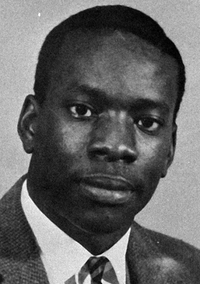America needs to define Evil, make it a capital offense and apply the law equally. AA, like every human endeavor, prolly started with the best intentions but evolved into something else.
What is actionable is a corporation that says, “We are putting a ‘help wanted’ sign on the office door, and here’s the kind of employee that we’re looking to hire. We’re looking to hire those of this race, but not that race.” So all of these preferences, whether it’s in the employment arena, contracting arena, internships — all of that I think will be energized by this Supreme Court opinion. And we’re blessed to have this Supreme Court opinion.
Are the concerns, though, of workplaces different from those of schools when it comes to why diversity might be important?
So if a bar in the south part of Boston is known as, you know, Flanagan’s Bar, and it’s Irish as Irish can be, and the owner’s Irish, and the bartenders are Irish, and the employees are Irish, and the great percentage of all the customers are Irish, Flanagan’s can’t put out a sign that says, “Bartender needed. Must be Irish,” because my customers are Irish.
Of course.
It works the same way. There is no difference. So if an African American or Hispanic goes in and applies for that job, Flanagan can’t tell that African American or that Hispanic, “Well, you know, my profit’s going to go down because, you know, my customers really want Irish, and they’re going to go over to O’Malley’s bar across the street if I hire a Black bartender.” That’s illegal.
ADVERTISEMENT
SKIP ADVERTISEMENT
Of course it is.
And so it is also illegal if — and I’m going to pull a name out of the air — if Google says, “We need to hire in this capacity, you know, African Americans,” or “We really have too many whites, so we need more Asians.” All of that is currently illegal, but not challenged as often as I believe it should.
So are you planning to turn your Yente talents to the workplace next?
Well, I think employment is one area that I think will garner greater attention, not just from me, but from other organizations, other legal policy foundations. I also think that some of the things that we associate with higher education — internships, scholarships, certain research grants — those need to be revisited if they have been race-exclusive.
Do you think that this decision has made it easier for your work to continue?
Well, I’ve said it in the past: This opinion is the end of the beginning. This issue of race and ethnicity in our public lives is not going to go away.
Do you worry that this affirmative action decision, in 20 or 30 years, might actually make America less fair for many more people? And how would you feel if that came to pass?
I don’t believe it’s going to come to pass. It is now up to the world of higher education to create fair and equitable admissions policies that do not discriminate on the basis of race. It is up to them. Each of them now has an institutional responsibility and an individual responsibility. They have their work cut out for them.
Edward Blum’s latest victory at the Supreme Court is the culmination of a long fight to take race out of college admissions. Is the workplace next?

www.nytimes.com
.






 If Hillary one, you wouldn't see no damn article in regards to women (we benefit from AA too).
If Hillary one, you wouldn't see no damn article in regards to women (we benefit from AA too). 